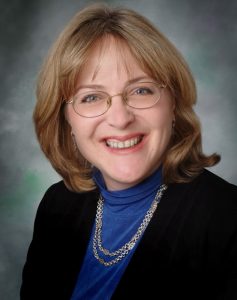Diana Butler Bass is “an author, speaker, and independent scholar specializing in American religion and culture.” Currently she serves as a Chabraja Fellow with the SeaburyNEXT project at Seabury Western Theological Seminary. Additionally, she has taught at Westmont College, the University of California at Santa Barbara, Macalester College, Rhodes College, and the Virginia Theological Seminary.
In the early years of this century she was the Project Director of a national Lilly Endowment funded study of mainline Protestant vitality. Her 2006 book, Christianity for the Rest of Us, was named as one of the best religion books of the year by Publishers Weekly.
Book Basics
Most Americans are aware that recent decades have been a time of change in religious belief, behaving, and belonging. Most who read this blog have some knowledge of varying aspects of these shifts. Few people understand how the many trends are linked and fewer still grasp how this looks within the context of church history. Diana Butler Bass draws on her rich experiences as a researcher, consultant, subject matter expert, and perpetual student of the topic to craft a book that is sure to become the starting point for conversation in the academy, the church, and even in the many communities that together comprise our culture.
Christianity After Religion is a three part story that is designed to be read sequentially:
- Part 1, “The End of Religion,” considers the changes within the framework of decline of traditional measures, primarily focusing on the last decade. Rather than simply recounting polls and popular opinion, Diana Butler Bass explores the deeper issues they suggest. (Readers will identify with their own life experiences while simultaneously better understanding the religious world in which they live.)
- Part 2, “A New Vision,” captures the many and varied efforts to reshape Christianity for the future. These efforts have been underway for decades yet clarity, much less unity, remains elusive. Butler Bass proposes that new visions must end the centuries old approach of believing, behaving, and belonging in favor of the more ancient order: belonging, behaving, and believing.
- Part 3, “Awakening,” moves from possibility to practice by arguing that the current experiences are a Fourth Great Awakening. By way of comparison with the first three Great Awakenings, the fourth seems enough like the previous to warrant the label yet dissimilar enough to warrant being considered the Fourth Great Awakenings (plural) or the Great Global Awakening to note its spiritual emphasis and impact on multiple religions.
Recommendation
While I regularly recommend books to specific people, I rarely recommend a book to everyone. As one who often writes and speaks about the decline of the mainline and the larger issue of religious change, I know that this topic is of incredible importance to those within the church (and those within the traditional structures of their religious traditions) and of incredible interest to those who are spiritual yet exist primarily or exclusively apart from the dominant religious structures from previous generations. Wherever you are on your spiritual and/or religious journey, I encourage you to read this text. If you engage it fully then discuss it with others, you will find many benefits including an enriched perspective on your experiences, a better understanding of the experiences of others, and an increased willingness to live your faith fully in the present while making time to glance at the past and look into the future.
So What?
The change is not just past or future; it is now. It is being performed today and every day. Diana Butler Bass explains:
The new global Great Awakening is not contained by the stage of the local Congregational church, in small groups, at camp meetings or tents, or at Pentecostal tabernacles or progressive political meetings. The awakening is being performed in the networked world, where the border between sacred and secular has eroded and where the love of God and neighbor – and the new vision of belonging, behaving, and believing – is being staged far beyond conventional religious communities. Although churches seem the most natural space to perform spiritual awakening, the disconcerting reality is that many people in Western society see churches more as museums of religion that sacred stages that dramatize the movement of God’s spirit (p. 258)
Questions to ponder:
- How much do I really know about the changes in the religious landscape during my lifetime? over the last decade?
- How have I experienced the Awakening being “performed in the networked world”?
- How might I benefit from learning more then engaging in dialogue about those facts and my experiences with those who have traveled different religious paths? What might this type of intentional interaction look like?
Diana Butler Bass. Christianity After Religion: The End of the Church and the Birth of a New Spiritual Awakening (HarperOne, 2012). ISBN: 9780062003737.
